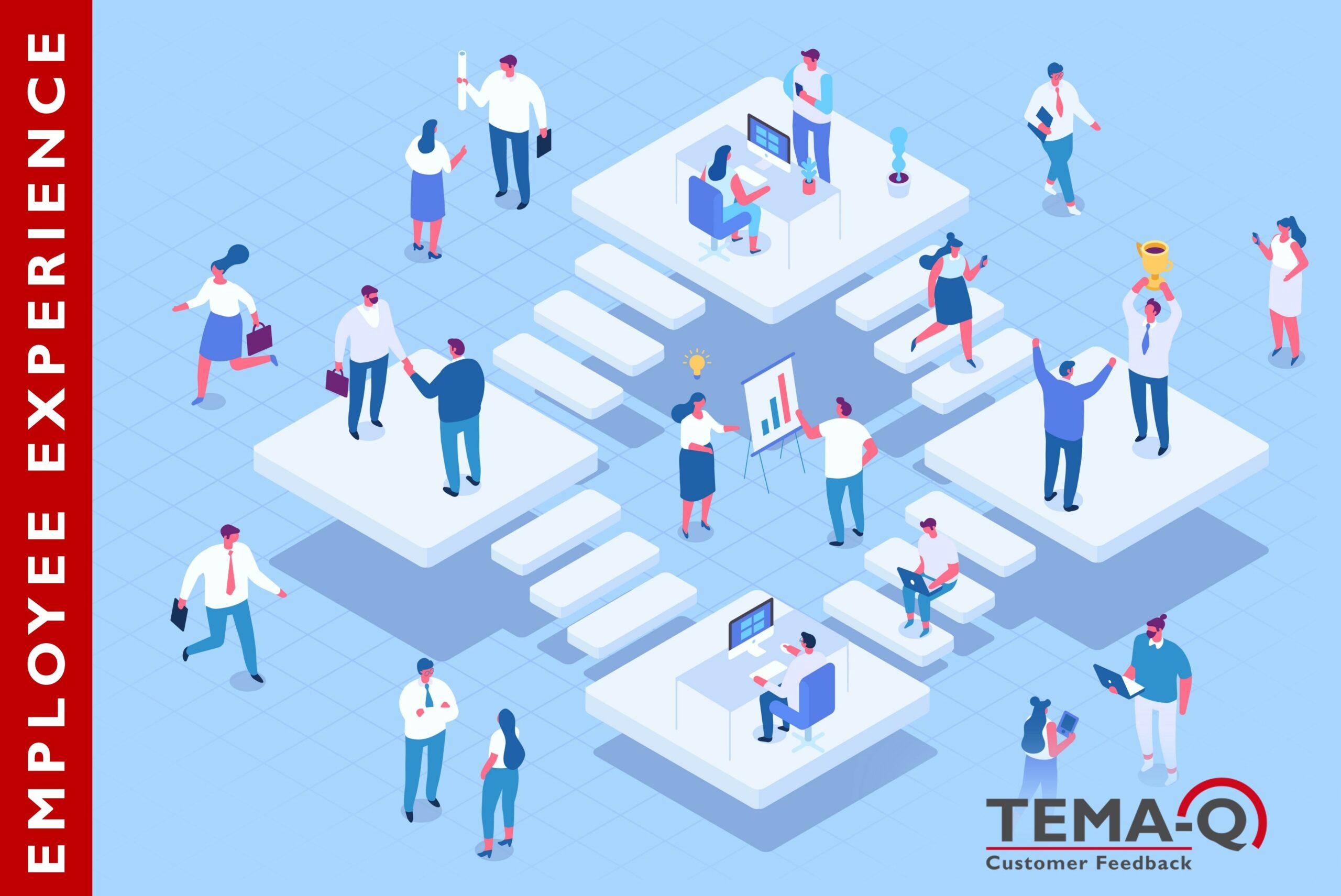The employee experience encompasses all of an employee’s experiences with a company (Bendel, 2023). Starting with the experiences during the application process, to the informal exchange with colleagues, the design of the workplace, the relationship with superiors, and the amount of salary: these are all experiences that the employees of a company gain and that evoke emotions in them. If the sum of all these experiences and the associated emotions is rather positive, then it can be considered a good employee experience.
The concept of employee experience is very complex. There are numerous aspects that influence the experience of employees. However, the so-called “moments that matter” are particularly decisive and formative for the employee experience. “Moments that matter” are key experiences of employees in a professional context, such as the first day at work, feedback discussions or special incidents. They are characterized by a high level of emotional involvement and play a decisive role in setting the course for the relationship between individuals and the company that employs them. If a company wants to work specifically on its employee experience, it should always start with these key experiences and shape them according to the needs of its employees. (Haufe, 2021)
The Employee Experience is a relatively young concept. In 2008, the link between the well-known Customer Experience and a company’s employees was made for the first time in a scientific article. In 2013, Mark Levy was the first to hold the title “Head of Employee Experience” in his role at Airbnb, paving the way for many more “Managers of Employee Experience” or “Employee Experience Specialists”. (Haufe, 2021)
At TEMA-Q, the area of employee experience studies has also developed over time from our expertise in the area of customer experience studies. By collecting the so-called “Voice of Employee”, i.e. capturing original statements from employees on relevant topics, we enable deep insights into their experience and uncover potential for future improvements. Our solution “Deep Dive EX” can be used to support internal company change processes or to provide targeted support for specific issues such as increased fluctuation or a lack of qualified junior staff. Continuous tracking, which serves to identify negative developments at an early stage, is also made possible by regular employee surveys.
Take a look at our LinkedIn profile at https://www.linkedin.com/company/tema-q/ to gain exciting insights into the world of customer and employee experience in the future.
If you have any questions about these or other topics, or would like a live demo version of ClaralytiX via video conference, click here to make an appointment or contact us.
Bendel, https://wirtschaftslexikon.gabler.de/definition/employee-experience-124947/version-388909, 2023
Haufe, https://www.haufe.de/personal/hr-management/employee-experience_80_540488.html, 2021

